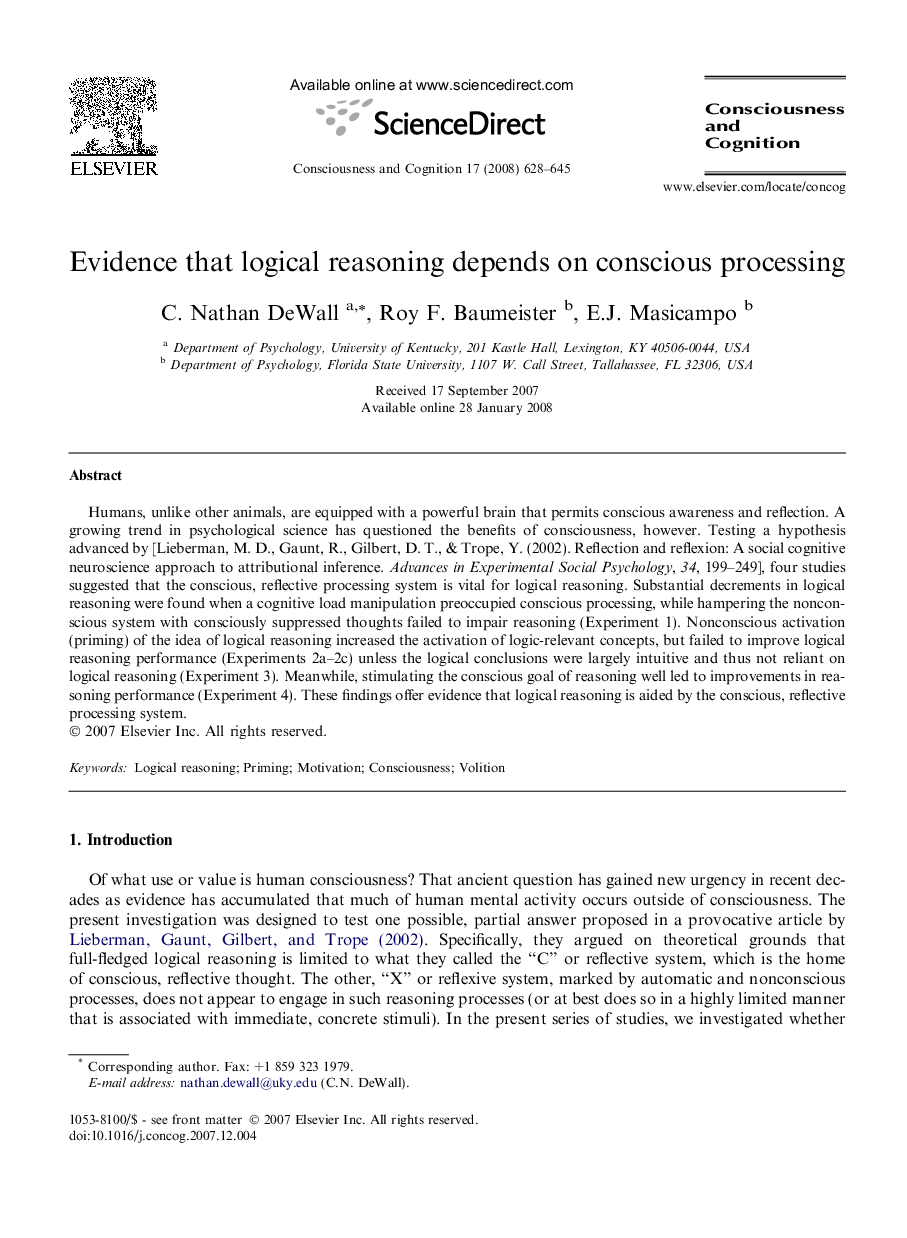| Article ID | Journal | Published Year | Pages | File Type |
|---|---|---|---|---|
| 928043 | Consciousness and Cognition | 2008 | 18 Pages |
Humans, unlike other animals, are equipped with a powerful brain that permits conscious awareness and reflection. A growing trend in psychological science has questioned the benefits of consciousness, however. Testing a hypothesis advanced by [Lieberman, M. D., Gaunt, R., Gilbert, D. T., & Trope, Y. (2002). Reflection and reflexion: A social cognitive neuroscience approach to attributional inference. Advances in Experimental Social Psychology, 34, 199–249], four studies suggested that the conscious, reflective processing system is vital for logical reasoning. Substantial decrements in logical reasoning were found when a cognitive load manipulation preoccupied conscious processing, while hampering the nonconscious system with consciously suppressed thoughts failed to impair reasoning (Experiment 1). Nonconscious activation (priming) of the idea of logical reasoning increased the activation of logic-relevant concepts, but failed to improve logical reasoning performance (Experiments 2a–2c) unless the logical conclusions were largely intuitive and thus not reliant on logical reasoning (Experiment 3). Meanwhile, stimulating the conscious goal of reasoning well led to improvements in reasoning performance (Experiment 4). These findings offer evidence that logical reasoning is aided by the conscious, reflective processing system.
